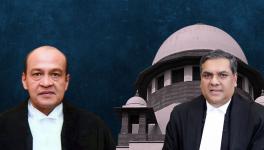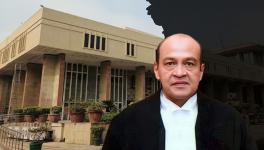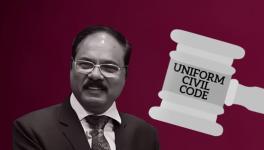The Value of Dissent in Supreme Court Judgments
Dissent in judiciary has an endemic correlation to value of dissent in a democracy, particularly in common law countries. RAJ SHEKHAR and MOHD. RAMEEZ RAZA write on the declining trend of dissent writing and it’s impact on judiciary’s role in the development of a robust legal system.
‘Why does a judgment need an author?’
Former CJI Ranjan Gogoi raised this question in one of his interviews on the ‘anonymous’ Ayodhya Verdict and created a stir in the legal community. While some sided with the ex-CJI, others held such judgments to be against the spirit of the common law system that India follows. However, what began with a crucial and politically critical judgment soon began to reflect an accepted form of judgment delivery.
Recently, the practise of ‘anonymous’ judgment or rather ‘per curiam’ judgment was reiterated in the Apex Court’s judgment in the contempt case against Prashant Bhushan. This has made critical minds ponder over the question of ‘by the court’ judgments, that promote a system of judgment delivery by the court as an ‘institution’ rather than as a ‘bench of judges’. This leads to a single yet powerful opinion expressed by the court, with no inclusion of the dissenting view.
Dissent has absolutely no role to play in deciding the outcome of a case, yet the implications can sometimes be more far-reaching than even anticipated by the dissenting judge. It’s quite possible that a dissenting opinion may lead to the challenge of existing jurisprudence on a subject and consequently the evolution of another more progressive one.
…a move to forego the traditional form- and ultimately the ‘dissent’ in a judgment- is something which the Indian Judiciary can clearly not afford at this point of time.
A dissent, therefore, is a valuable tool that opens the door for the evolution of law.
Often, a dissenting opinion in one case gets adopted as a majority opinion in a subsequent one. For instance, the dissenting opinion of Justice Fazl Ali in A.K. Gopalan v. State of Madras, was adopted later in the case of Maneka Gandhi v. Union of India. The decision in the former case was overruled and dissent of Fazl Ali led to the adoption of a procedure that must be ‘just, fair and reasonable’.
A more recent example is the dissent by Justice D Y Chandrachud in the KS Puttaswamy v. Union of India which declared the Aadhar Act to be ultra vires of the powers of the Constitution. These are a few prominent examples of the dissenting views that have had a huge impact on Indian Law and Jurisprudence.
As a matter of thumb rule, constitutional courts in common law countries have preferred writing seriatim judgments, or ‘By the Judges’ form of writing judgments. This means that every judge on the bench puts forth his reasoning and application of law behind the arrival at his judgment. Following which, the observers would have to go through each of those individual reasonings and determine the central premise which led to that specific conclusion.
Thus, as opposed to civil law countries, judges of common law countries have a greater role to play in not just maintaining the stance of law but also aiding in its evolution.
While bulkier than their counterparts, these judgments provide a wider array of views. Though not as powerfully, the judgments highlight the most important aspect of a judgment which the ‘per curiam’ one lacks i.e the dissenting opinion.
The abandonment of the common law tradition of attributing decisions to individual judges in favour of an anonymous and unanimous approach is remarkable owing to the conservative nature of courts when it comes to procedural changes. Yet, the move seems foggy owing to the historical precedents and the existing political scenario in India. Considering all these aspects, a move to forego the traditional form- and ultimately the ‘dissent’ in a judgment- is something which the Indian Judiciary can clearly not afford at this point of time.
The practice of writing per curiam judgments can also be seen as violative of Article 145 (5) of the Indian Constitution. This empowers a Judge, who does not concur with the majority opinion, to deliver a dissenting judgment or opinion. While delivering a dissenting opinion is the complete discretion of the judge, yet if the current trend continues then there will be no scope left to exercise that discretion.
We need to understand that in Civil Law Countries a judge is a kind of expert clerk.
He is presented with a fact situation to which a ready legislative response will be readily found in all except the extraordinary case. According to Professor John H Merryman, his function is merely to find the right legislative provision, couple it with the fact situation, and bless the solution that is more or less automatically produced from such a union.
Such a paradigm shift in judgment delivery is questionable on the grounds of suppressing dissent that takes a toll on the integrity of fair judicial decision making
However, things are quite different when it comes to common law countries like India, where a Judge is not merely a functionary or a civil servant. His position can be understood in words of Professor Roger Perrot “The judge has the immense power to transform a readymade garment (legislated law) into a tailor-made suit at the price of alterations that may be considerable and sometimes rather unexpected. From this, it has often been deduced that the judicial authority is thus able to perform a work of rejuvenation”. Thus, as opposed to civil law countries, judges of common law countries have a greater role to play in not just maintaining the stance of law but also aiding in its evolution.
There is no denying that the majority opinion lays the foundations of law, but the dissenting opinion lays the road for its evolution.
The judiciary indeed may have reasons for its new stance of delivering ‘anonymous’ judgments. However, it also needs to maintain its duties towards the spirit of democracy by being transparent. Such a paradigm shift in judgment delivery is questionable on the grounds of suppressing dissent that takes a toll on the integrity of fair judicial decision making.
We hope that this ‘ per curiam’ may just be a ‘passing phenomenon’, with no intent to ‘become the new normal’, for the question of authorship and who dissent matters in ensuring transparency and safeguarding rights.
“When history demonstrates that one of the Court’s decisions has been a truly horrendous mistake, it is comforting . . . to look back and realize that at least some of the Justices saw the danger clearly and gave voice, often eloquent voice, to their concern.”
– Justice Antonin Scalia
The article was originally published in The Leaflet.
(Raj Shekhar is a student at National University of Study and Research in Law, and Mohd. Rameez Raza is a student at Faculty of Law, Integral University of India. Views are personal.)
Get the latest reports & analysis with people's perspective on Protests, movements & deep analytical videos, discussions of the current affairs in your Telegram app. Subscribe to NewsClick's Telegram channel & get Real-Time updates on stories, as they get published on our website.
























